D Pharma Ka Full Form
The full form of D. Pharma is Diploma in Pharmacy. It is a two-year undergraduate diploma course designed for students interested in pursuing a career in the pharmaceutical The full form of D. Pharma is Diploma in Pharmacy. It is a two-year undergraduate diploma course crafted for students aiming to build a career in the pharmaceutical industry. D Pharma Ka Full Form introduces students to foundational pharmacy knowledge, covering key subjects such as pharmacology, pharmaceutical chemistry, pharmacognosy, and essential pharmacy practices industry. The course provides foundational knowledge of pharmacy, including subjects like pharmacology, pharmaceutical chemistry, pharmacognosy, and pharmacy practices.
A D. Pharmacy diploma serves as the initial step toward becoming a registered pharmacist in India, allowing graduates to work in hospitals, clinics, and retail pharmacies. With D Pharma Ka Full Form highlighted, this qualification also provides a pathway to further studies, such as B.Pharm or M.Pharm, for those seeking advanced knowledge and career opportunities.
Some of the most opted courses in India and St. Andrews college or different Engineering college or Management colleges are as follows:-
- Btech
- Btech CSE
- MTech
- Btech ETCE
- BCA
- BBA
- MBA
- MCA
- DPharma – St. Andrews College of Pharmacy
- BPharma – St. Andrews College of Pharmacy
- BArch – St. Andrews College of Architecture
Introduction to DPharma Course
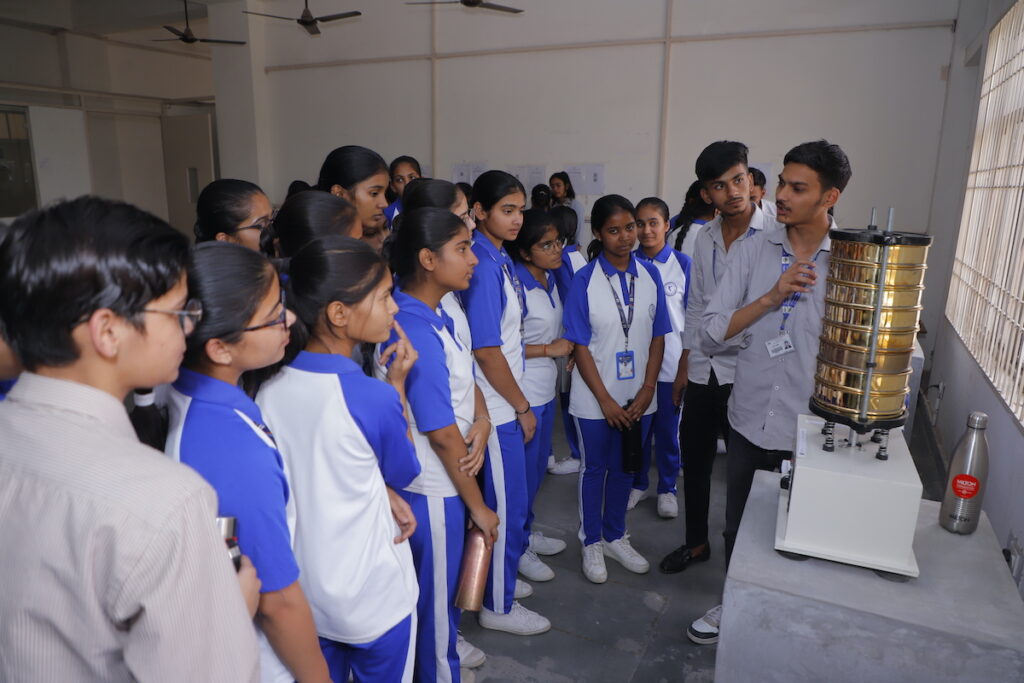
The Diploma in Pharmacy (D. Pharma) is a foundational course designed for students aspiring to enter the pharmacy industry. This two-year diploma program provides essential knowledge and skills required to work in the field of pharmacy, making it a critical step for those aiming to become registered pharmacists in India.
The Diploma in Pharmacy, commonly known as D. Pharma, is a two-year undergraduate diploma course designed for students interested in building a career in the pharmaceutical industry. In the course, D Pharma Ka Full Form is introduced as students gain foundational knowledge of pharmacy, studying key subjects like pharmacology, pharmaceutical chemistry, pharmacognosy, and essential pharmacy practices to prepare for a rewarding career in the field.
D. Pharma graduates are qualified to work in various settings, including hospitals, community pharmacies, pharmaceutical companies, and research laboratories. They can also manage or own a pharmacy, providing healthcare services directly to the public. With D Pharma Ka Full Form highlighting the significance of a Diploma in Pharmacy, those interested in further studies see D. Pharma as a stepping stone to advanced courses like Bachelor of Pharmacy (B. Pharm) and Master of Pharmacy (M. Pharm).
Regulated by the Pharmacy Council of India (PCI), the D. Pharma course ensures that graduates meet the standards required to deliver safe and effective pharmaceutical care.
Importance of DPharma Degree
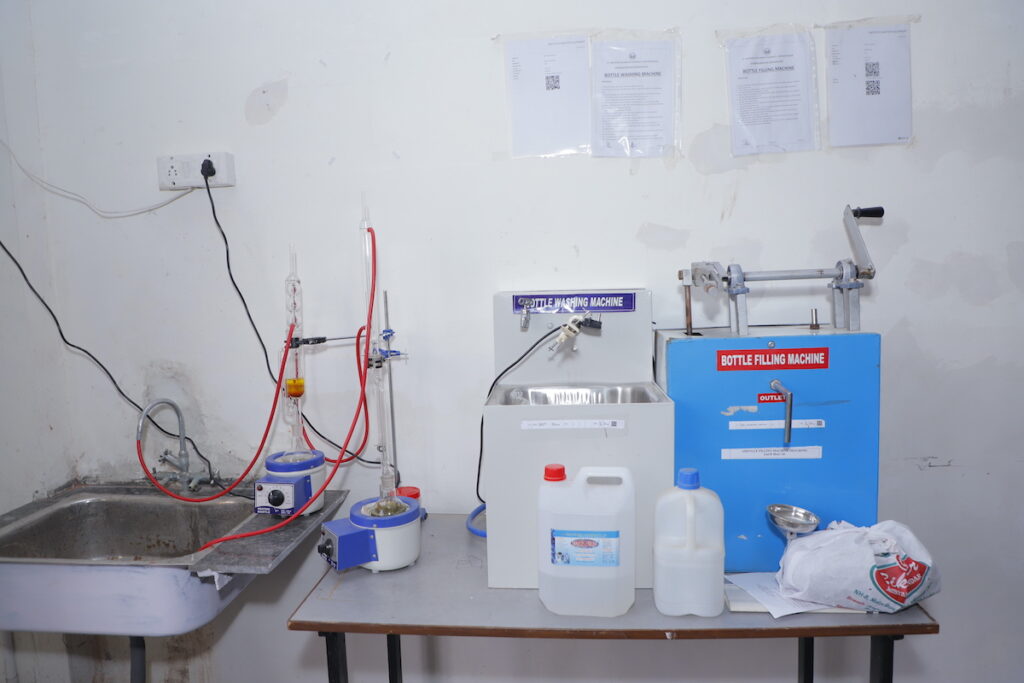
A D.Pharm degree is essential for entering the pharmaceutical field, offering foundational knowledge in drug formulations, pharmacology, and patient care. With D Pharma Ka Full Form as a focus, the program equips students with the skills needed to excel as pharmacists, pharmacy technicians, or in pharmaceutical sales.
The degree is essential for handling prescriptions, ensuring safe medication use, and supporting healthcare teams.
The D. Pharma course acts as a foundational step for advanced studies, such as B.Pharm or M.Pharm, and opens up a range of career opportunities in hospitals, retail pharmacies, and the broader pharmacy industry. By understanding D Pharma Ka Full Form, students can better appreciate the course’s value in establishing a solid base for a successful career in healthcare and pharmaceuticals. Overall, a D.Pharm degree is crucial for those who aspire to make a significant impact in these fields.
DPharma Course Duration

The D. Pharma (Diploma in Pharmacy) course typically has a duration of two years.
It is divided into four semesters, with each semester focusing on different aspects of pharmaceutical education, including subjects like pharmacology, pharmaceutical chemistry, pharmacognosy, and hospital pharmacy.
In addition to theoretical learning, the course also includes practical training in laboratories and hospitals to provide hands-on experience.
After completing the two-year program, students are required to undergo a mandatory internship or practical training for a period of 500 hours over at least three months in a recognized hospital or pharmacy.
Highlights of DPharma Course
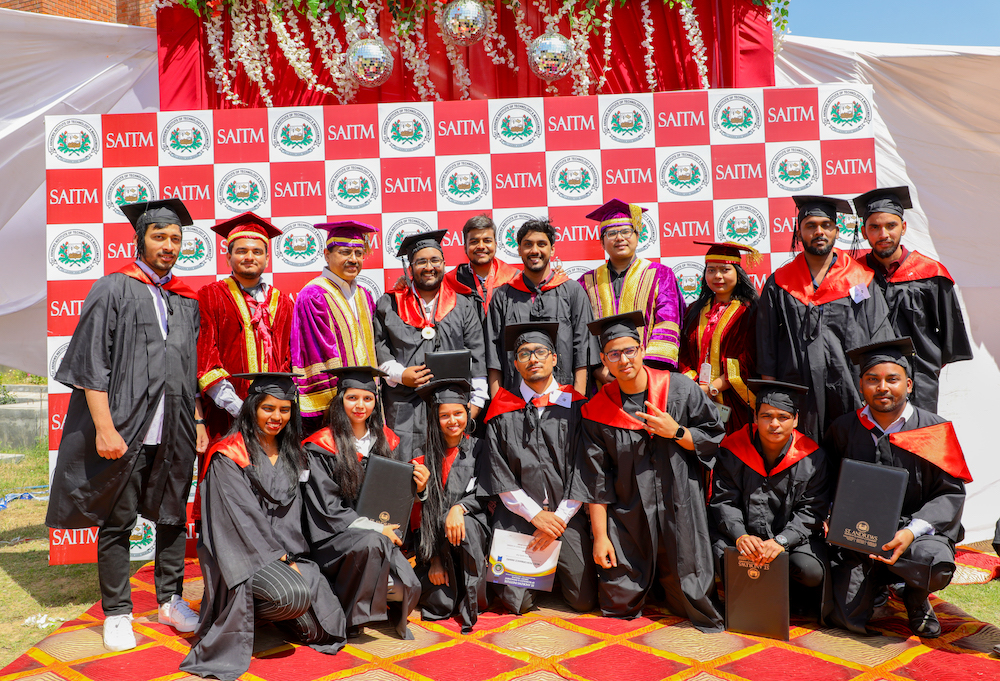
The D.Pharm course provides a comprehensive foundation in pharmaceutical sciences, including drug formulation, pharmacology, and clinical practice.
Highlights include hands-on training in laboratories and pharmacies, understanding drug interactions, and learning about ethical and legal aspects of pharmacy.
The curriculum typically includes subjects like medicinal chemistry, pharmacognosy, and pharmacy management. With D Pharma Ka Full Form emphasized, students also gain hands-on experience through internships and industrial training, preparing them for practical roles in the field.
The course prepares graduates for roles in retail and hospital pharmacies, pharmaceutical sales, and quality control.
Additionally, it serves as a stepping stone for further studies like B.Pharm or M.Pharm, enhancing career opportunities in the pharmaceutical field.
Type of DPharma Course
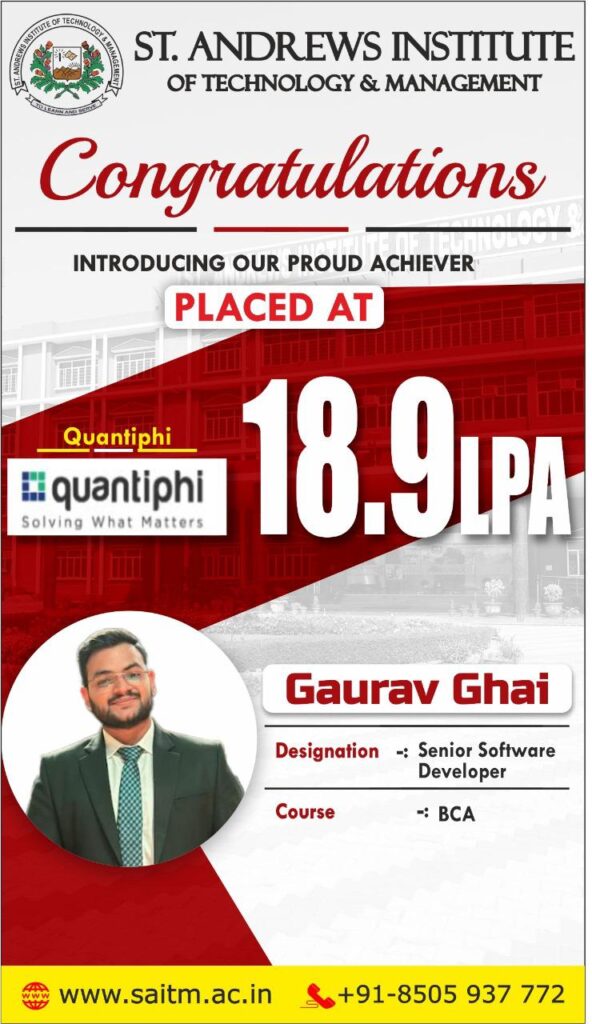
The D.Pharm (Diploma in Pharmacy) course typically includes:
Regular D.Pharm
A full-time, classroom-based program offered by various institutes. It covers fundamental pharmaceutical sciences and practical training.
Distance Learning D.Pharm
Offered by some institutions, allowing students to complete coursework remotely, though practical training is often required in person.
Part-Time D.Pharm
Designed for working professionals or those with other commitments, offering flexibility in terms of class schedules and duration.
Online D.Pharm
A relatively new mode that includes online lectures and materials, though practical components are still typically conducted in-person.
Integrated D.Pharm
Combines D.Pharm with additional certification or training programs in related fields such as clinical research or pharmacy management.
Eligibility Criteria for D Pharmacy Course
The eligibility criteria for the Diploma in Pharmacy (D. Pharma) course typically include the following:
Educational Qualification
Candidates must have completed their Higher Secondary Education (10+2) from a recognized board or equivalent, with a focus on science subjects. Specifically, subjects such as Physics, Chemistry, and Biology or Mathematics are required.
Minimum Marks
Generally, a minimum of 50% aggregate marks in the 10+2 examinations is required. However, this percentage may vary depending on the institution.
Age Limit
There is usually no strict age limit for admission to D. Pharma courses, but candidates should check specific requirements set by the institution.
Entrance Exams: Some institutions may require candidates to pass an entrance exam for admission, though many institutions admit students based on their 10+2 examination results.
Domicile Requirements
Certain institutions may have specific domicile requirements or reservations based on state or region.
Other Requirements
Some colleges may require candidates to meet additional criteria such as medical fitness or interviews.
D Pharma Course Curriculum and Syllabus

Below is a general overview of the curriculum and syllabus:
Year 1
Semester 1
Pharmaceutical Chemistry – I
- Basic concepts of organic and inorganic chemistry
- Drug formulation and analysis
Pharmaceutics – I
- Introduction to pharmacy and pharmaceutical sciences
- Drug delivery systems and dosage forms
Pharmacognosy – I
- Study of natural drugs and their sources
- Identification of medicinal plants
Human Anatomy and Physiology – I
- Basic human anatomy and physiological processes
- Structure and function of major organs
Health Education and Community Pharmacy
- Principles of health education
- Community pharmacy practices and patient counseling
Semester 2
Pharmaceutical Chemistry – II
- Advanced concepts in organic and inorganic chemistry
- Drug synthesis and quality control
Pharmaceutics – II
- Advanced dosage forms and drug delivery systems
- Pharmaceutical technology
Pharmacognosy – II
- Advanced study of medicinal plants and their pharmacological properties
Human Anatomy and Physiology – II
- Advanced study of human anatomy and physiological processes
Biochemistry
- Basic biochemistry concepts
- Metabolism and biochemical processes
Year 2
Semester 3
Pharmaceutical Jurisprudence
- Laws and regulations related to pharmacy practice
- Ethical and legal aspects of pharmacy
Drug Store and Business Management
- Principles of managing a pharmacy
- Business operations and management
Clinical Pharmacy and Therapeutics
- Clinical pharmacy practices
- Drug interactions and therapeutics
Pharmaceutical Analysis
- Techniques for analyzing pharmaceutical products
- Quality control and assurance
Internship/Practical Training
- Hands-on experience in a hospital or retail pharmacy setting
Semester 4
Hospital and Community Pharmacy
- Roles of pharmacists in hospitals and community settings
- Patient care and drug dispensing
Pharmacy Practice
- Practical aspects of pharmacy practice
- Case studies and problem-solving
Environmental Sciences
- Impact of pharmacy practices on the environment
- Waste management and sustainability
Project Work/Dissertation
- Research or project related to pharmaceutical practice or pharmaceutical sciences
Entrance Exam for DPharma
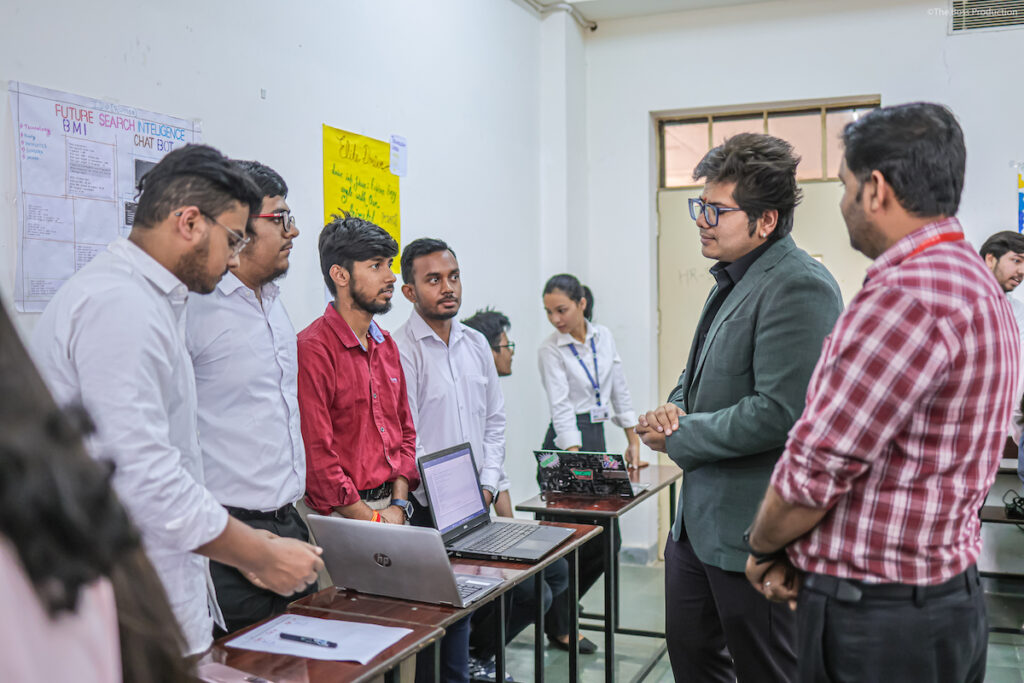
Some of the common entrance exams include:
GPAT (Graduate Pharmacy Aptitude Test)
Though primarily for M.Pharm admissions, some states and institutions may consider GPAT scores for D. Pharma admissions.
State-Level Entrance Exams
Many states conduct their own entrance exams for D. Pharma admissions. For example:
- MHT-CET: Maharashtra Common Entrance Test.
- WBJEE: West Bengal Joint Entrance Examination.
- Karnataka CET: Karnataka Common Entrance Test.
University-Specific Entrance Exams
Some universities have their own entrance exams for D. Pharma, such as:
- Jamia Hamdard Entrance Test
- Amity University Entrance Exam
Merit-Based Admission
In some states or institutions, admissions are based on merit in the qualifying exam (typically 10+2 with a science background).
It’s important to check the s
Fees for D Pharma Course
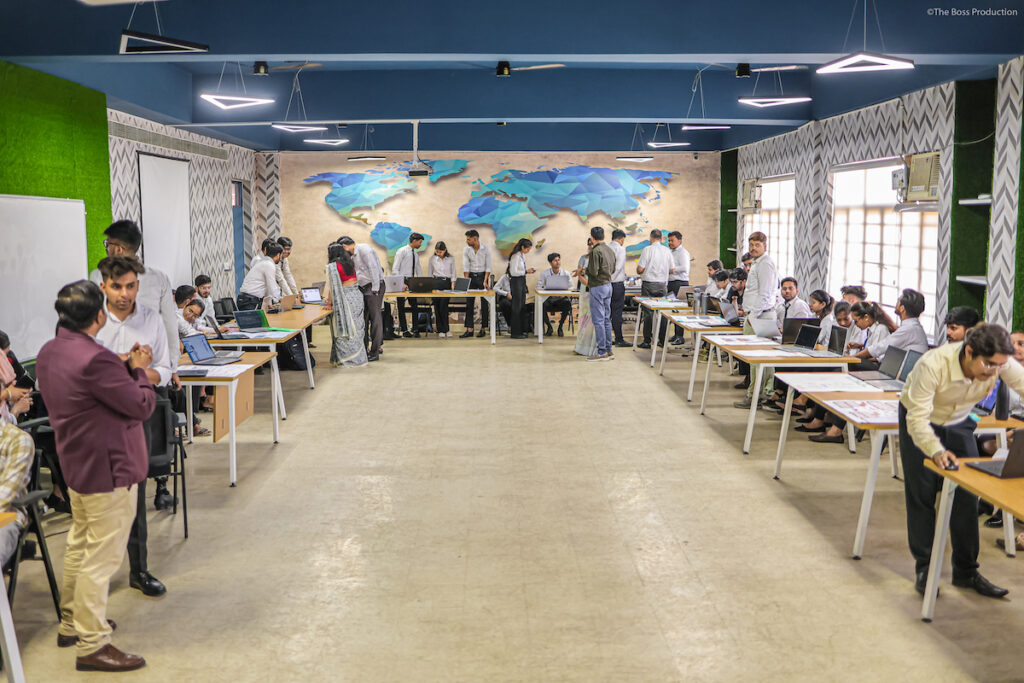
Here’s a general breakdown of the D Pharma fees:
Government Colleges
- Annual Fees: ₹10,000 to ₹50,000
- Additional Costs: Exam fees, lab fees, and other miscellaneous expenses
Private Colleges
- Annual Fees: ₹50,000 to ₹1,50,000
- Additional Costs: Exam fees, lab fees, library fees, and other miscellaneous expenses
Top Private Institutions
- Annual Fees: ₹1,00,000 to ₹2,00,000
- Additional Costs: Uniforms, books, and other extra-curricular activities
Other Costs
- Hostel Fees (if applicable): ₹20,000 to ₹60,000 per year
- Books and Supplies: ₹5,000 to ₹10,000 per year
Top DPharma Specializations
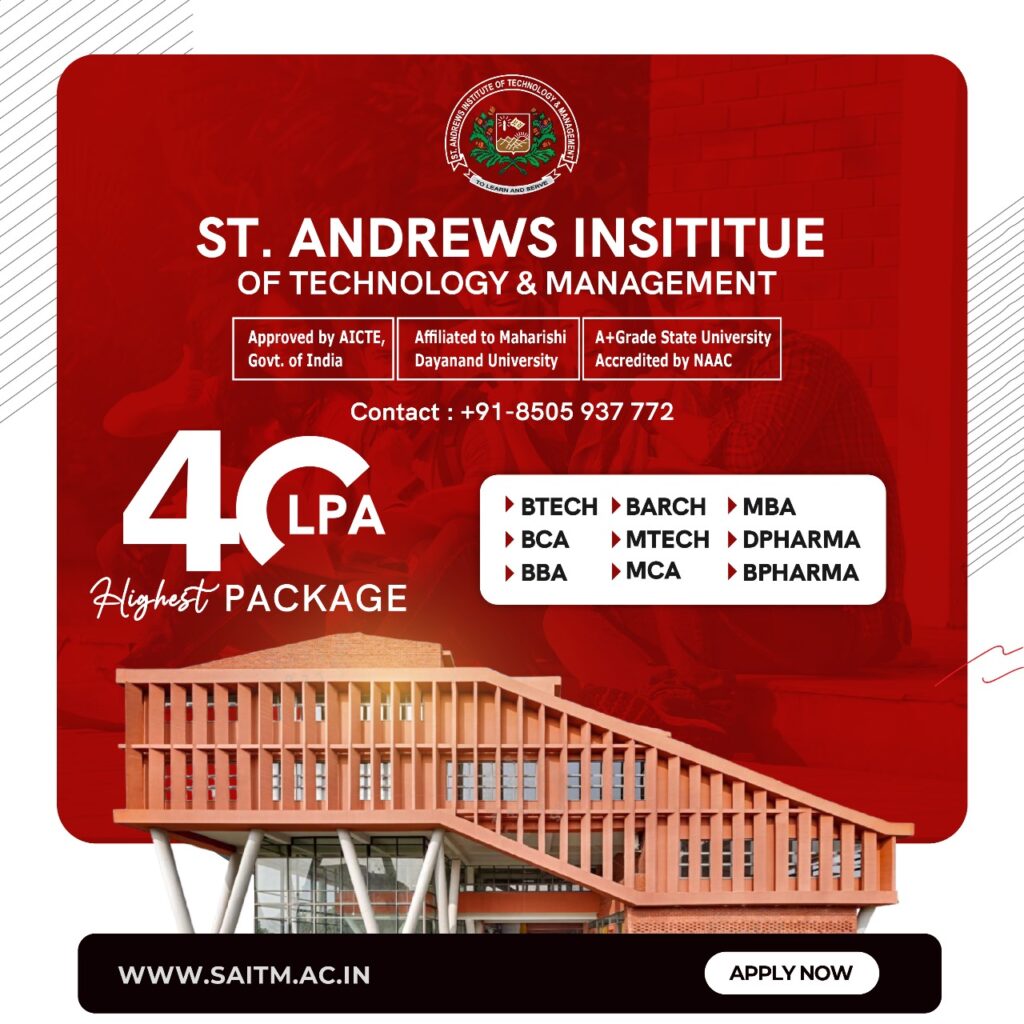
Here are some key specializations and areas of focus that D. Pharma graduates might consider:
Community Pharmacy
- Focuses on managing retail pharmacies and providing patient counseling.
- Involves understanding over-the-counter medications, customer service, and community health initiatives.
Clinical Pharmacy
- Emphasizes patient care in hospital settings.
- Includes drug therapy management, clinical trials, and patient counseling.
Hospital Pharmacy
- Specializes in the preparation and dispensing of medications in hospital settings.
- Involves working closely with medical professionals to ensure proper medication management.
Pharmaceutical Manufacturing
- Focuses on the production and quality control of pharmaceutical products.
- Includes roles in drug formulation, manufacturing processes, and quality assurance.
Pharmacovigilance
- Involves monitoring and evaluating the safety of medications after they are marketed.
- Includes tracking adverse drug reactions and ensuring drug safety.
Regulatory Affairs
- Deals with ensuring that pharmaceutical products comply with regulatory requirements.
- Involves working with regulatory bodies to get approvals for new drugs and maintaining compliance.
Pharmaceutical Marketing and Sales
- Focuses on the marketing and promotion of pharmaceutical products.
- Includes roles in sales, marketing strategies, and market research.
Drug Store Management
- Specializes in managing the operations of retail and institutional drug stores.
- Includes inventory management, customer service, and business operations.
Toxicology
- Involves the study of the harmful effects of chemicals and drugs.
- Includes roles in research, safety testing, and risk assessment.
Medicinal Chemistry
- Focuses on the design and development of new pharmaceutical compounds.
- Includes roles in drug discovery, chemical synthesis, and analytical chemistry.
Top Government Colleges for DPharma

Here’s a list of top government colleges for D. Pharma in India:
Delhi Institute of Pharmaceutical Sciences and Research (DIPSAR), Delhi
- Overview: One of the premier institutes for pharmacy education in India, offering a comprehensive D. Pharma program.
- Key Highlights: State-of-the-art infrastructure, experienced faculty, and strong industry connections.
St. Andrews College of Pharmacy (SACP), Gurgaon
- Overview: SACP is a leading private institution offering a D. Pharma program with modern facilities and industry-aligned curriculum.
- Key Highlights: Experienced faculty, modern laboratories, and a focus on student-centric learning.
Jamia Hamdard, New Delhi
- Overview: Recognized as a top university for pharmacy studies, Jamia Hamdard offers quality education and research opportunities.
- Key Highlights: Excellent placement record, advanced research facilities, and a focus on holistic education.
Government College of Pharmacy, Bengaluru
- Overview: A renowned institution offering pharmacy education with a focus on practical training and industry readiness.
- Key Highlights: Strong academic curriculum, extensive alumni network, and industry collaboration.
Maharaja Sayajirao University of Baroda, Vadodara
- Overview: A prestigious university offering a comprehensive D. Pharma course with strong academic and research focus.
- Key Highlights: Rich legacy, excellent faculty, and strong industry connections.
Top Private Colleges for DPharma

Here’s a list of top private colleges for D. Pharma in India:
St. Andrews College of Pharmacy (SACP), Gurgaon
SACP in Gurgaon is recognized for its quality education in pharmacy. The D. Pharma program at SACP emphasizes practical training and industry readiness, with modern laboratories and experienced faculty. SACP also provides excellent placement opportunities for its graduates.
Acharya & BM Reddy College of Pharmacy, Bengaluru
Acharya & BM Reddy College of Pharmacy is known for its academic excellence and research initiatives. The college offers a D. Pharma program that integrates practical training with academic knowledge, preparing students for successful careers in pharmacy.
PSG College of Pharmacy, Coimbatore
PSG College of Pharmacy is known for its rigorous academic environment and modern infrastructure. The D. Pharma program emphasizes research and practical skills, with strong placement support.
NMIMS School of Pharmacy, Mumbai
NMIMS School of Pharmacy offers a D. Pharma program that combines academic knowledge with practical training. The college has strong industry connections, providing students with ample placement opportunities.
ROI of Top DPharma Colleges

Here’s a brief overview of the Return on Investment (ROI) for D.Pharm programs:
St. Andrews College of Pharmacy (SACP)
- Course Fees: Moderate.
- Placement Rate: Good.
- Salary Prospects: ₹2.5-4 lakh per annum.
- ROI: Balanced, offering reasonable fees and solid placement opportunities.
DIPSAR (Delhi Institute of Pharmaceutical Sciences and Research)
- Course Fees: Higher.
- Placement Rate: High.
- Salary Prospects: ₹4-6 lakh per annum.
- ROI: Strong, with high placement rates and competitive salaries.
JSS College of Pharmacy, Mysuru
- Course Fees: Moderate to high.
- Placement Rate: Good.
- Salary Prospects: ₹3-5 lakh per annum.
- ROI: Good, with substantial placement support.
NIPER (National Institute of Pharmaceutical Education and Research)
- Course Fees: High.
- Placement Rate: Very high.
- Salary Prospects: ₹5-7 lakh per annum.
- ROI: Excellent, with top-tier placement and salary prospects.
KLE College of Pharmacy, Belgaum
- Course Fees: Moderate.
- Placement Rate: Good.
- Salary Prospects: ₹2.5-4 lakh per annum.
- ROI: Good, with reasonable fees and placement support.
How to Choose the Best DPharma College
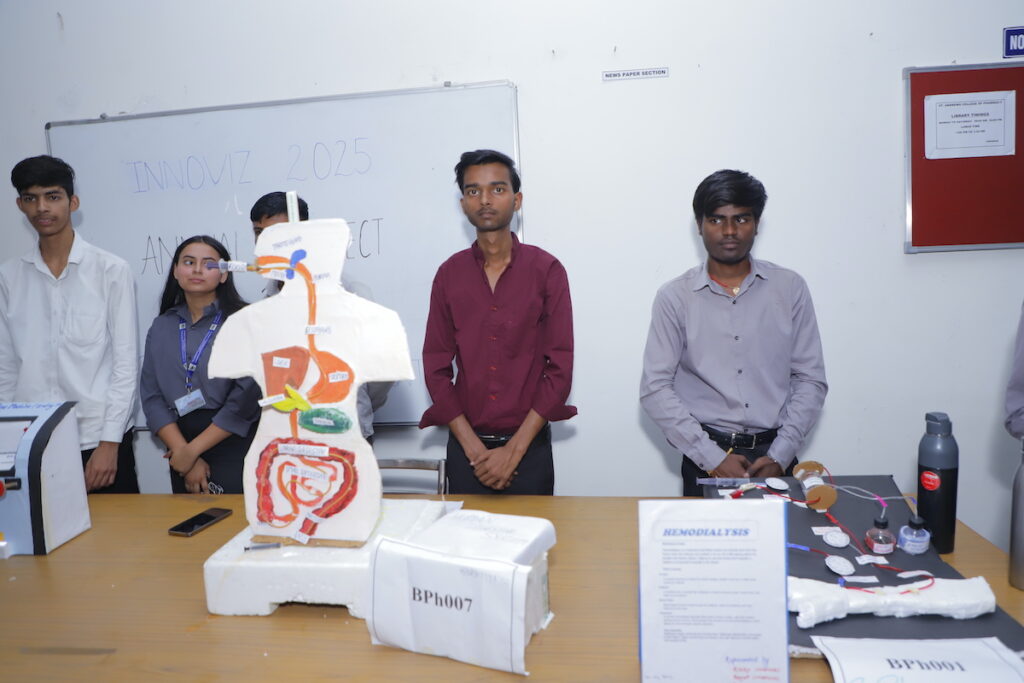
Here are some key factors to consider when choosing the best DPharma college:
Accreditation and Recognition
- Ensure the college is accredited by the Pharmacy Council of India (PCI) and recognized by relevant educational authorities. Accreditation guarantees that the college meets the required standards of education.
Faculty and Infrastructure
- Research the qualifications and experience of the faculty members. A well-qualified faculty can significantly enhance your learning experience. Additionally, check if the college has well-equipped laboratories, a library with a good collection of books, and modern classrooms.
Curriculum and Specializations
- Review the curriculum to ensure it covers all essential subjects and offers practical training. Some colleges might also offer specializations or elective subjects that align with your career interests.
Placement Record
- Look into the college’s placement history. A strong placement cell with connections to top pharmacy companies can provide excellent job opportunities after graduation.
Industry Exposure
- Consider colleges that offer internships, industrial visits, and collaborations with pharmaceutical companies. Hands-on experience in the industry is invaluable for practical learning and career development.
Alumni Network
- A strong alumni network can provide mentorship, networking opportunities, and insights into the industry. Check if the college has an active alumni association and successful graduates in the field.
Location and Accessibility
- The location of the college matters in terms of convenience, cost of living, and proximity to pharmaceutical hubs. A college in or near a major city might offer better industry connections and job prospects.
Fees and Scholarships
- Compare the fee structure of different colleges and check if they offer scholarships, financial aid, or installment payment options. Ensure the fees are within your budget without compromising on the quality of education.
Student Reviews and Ratings
- Look for reviews and ratings from current students and alumni. Their experiences can provide valuable insights into the college’s environment, teaching quality, and overall experience.
Extracurricular Activities
- A well-rounded education includes opportunities for extracurricular activities, which help in overall personality development. Check if the college offers clubs, sports, cultural events, and other activities.
Hospital and Clinical Training
- Practical training in hospitals and clinics is essential for DPharma students. Ensure the college provides adequate opportunities for hospital visits and clinical practice.
Government vs. Private Colleges
- When choosing between a government or private college, it’s essential to weigh your options. Government colleges often have lower fees, while private institutions may provide better infrastructure and placement opportunities. Understanding D Pharma Ka Full Form can help you consider which path aligns best with your career goals and financial situation.
DPharma Scope

Here’s an overview of the scope
Pharmacist
One of the most common career paths is working as a registered pharmacist in hospitals, retail pharmacies, or community health centers. Pharmacists are responsible for dispensing medications, counseling patients, and ensuring proper medication management.
Pharmaceutical Industry
D. Pharma graduates can find roles in the pharmacy industry in areas like manufacturing, quality control, packaging, and marketing of pharmaceutical products. They may work in pharmaceutical companies, contributing to the production and distribution of medicines.
Hospital and Clinical Pharmacy
Graduates can work in healthcare settings such as hospital pharmacies, where they collaborate with healthcare professionals to ensure the safe and effective use of medications. They may also participate in clinical trials and contribute to pharmaceutical research.
Regulatory Affairs
D. Pharma holders can explore careers in regulatory affairs, where they ensure that pharmaceutical products comply with legal and regulatory standards. With D Pharma Ka Full Form emphasizing the significance of this qualification, professionals in this role play a vital part in the drug approval process and in upholding compliance with government regulations.
Sales and Marketing
Opportunities exist in the sales and marketing of pharmaceutical products. Graduates can work as medical representatives, promoting and selling medicines to healthcare professionals and institutions.
Entrepreneurship
With the required licenses, D. Pharma graduates can open their own pharmacy or medical store, becoming entrepreneurs in the healthcare sector.
Government Jobs
There are opportunities in government sectors, such as working in drug control organizations, healthcare departments, and public health services.
D.Pharm vs. B.Pharm: Key Differences

Duration
- D.Pharm: Typically a 2-year diploma course.
- B.Pharm: A 4-year undergraduate degree.
Curriculum
- D.Pharm: Focuses on basic pharmaceutical sciences, drug formulation, and clinical practice.
- B.Pharm: Covers advanced pharmaceutical topics, research, and management, including in-depth studies of pharmacology, medicinal chemistry, and pharmaceutical practice.
Career Scope
- D.Pharm: Prepares for roles as pharmacy technicians, assistants, and entry-level positions in retail and hospital pharmacies.
- B.Pharm: Opens doors to higher roles such as pharmacists, pharmaceutical sales, quality control, and research positions.
Eligibility for Further Studies
- D.Pharm: Can lead to B.Pharm or other advanced studies.
- B.Pharm: Allows progression to M.Pharm, MBA, or research-oriented programs.
Professional Roles
- D.Pharm: Emphasizes practical skills for dispensing medications and patient care.
- B.Pharm: Includes broader responsibilities like drug development, clinical trials, and regulatory affairs.
How a D.Pharm Degree Can Boost Your Career in Pharmacy

Here’s how it can enhance your career:
Entry-Level Opportunities
It prepares you for various roles such as pharmacy technician, assistant, or retail pharmacist, offering immediate job prospects in hospitals, pharmacies, and drugstores.
Practical Experience
The course includes hands-on training and internships, giving you practical experience in dispensing medications, managing inventory, and interacting with patients.
Career Advancement
A D.Pharm acts as a foundational step for further education, such as B.Pharm or M.Pharm, paving the way for higher roles in pharmaceutical research, quality control, and management. With D Pharma Ka Full Form understood, students can see how this qualification sets the stage for advanced studies and career growth in the pharmaceutical field.
Industry Knowledge
You gain in-depth knowledge of drug formulation, pharmacology, and regulatory aspects, enhancing your expertise and credibility in the pharmaceutical field.
Networking Opportunities
The program often includes industry connections and networking opportunities, helping you build professional relationships and find job placements.
Higher Studies After DPharma

After completing a D.Pharm, you have several options for higher studies:
B.Pharm (Bachelor of Pharmacy)
A natural progression to deepen pharmaceutical knowledge and open up more career opportunities.
M.Pharm (Master of Pharmacy)
Specializes in various fields like Pharmaceutics, Pharmacology, or Pharmaceutical Chemistry for advanced roles.
MBA (Master of Business Administration)
Focuses on management and administration within the pharmaceutical industry or other sectors.
M.Sc in Pharmaceutical Sciences
Offers a research-oriented approach and can lead to roles in academia or advanced research positions.
Ph.D. (Doctor of Philosophy)
Pursue a Ph.D. in Pharmaceutical Sciences or related fields for a career in research, academia, or advanced industry roles.
Clinical Research
Specialized courses or certifications in clinical research can lead to careers in drug development and clinical trials.
Required Skillset for DPharma
For a successful career in D.Pharm, you should have:
Technical Knowledge
Understanding of pharmaceutical sciences, drug formulations, and pharmacology.
Attention to Detail
Accuracy in dispensing medications and understanding prescriptions.
Communication Skills
Effective interaction with patients, healthcare professionals, and colleagues.
Problem-Solving Skills
Ability to address and resolve issues related to drug interactions and patient queries.
Organizational Skills
Efficient management of inventory, records, and workload.
Ethical Practice
Adherence to legal and ethical guidelines in pharmaceutical practice.
Customer Service
Providing empathetic and informative support to patients and customers.
Scholarship and Financial Aid for DPharma Students
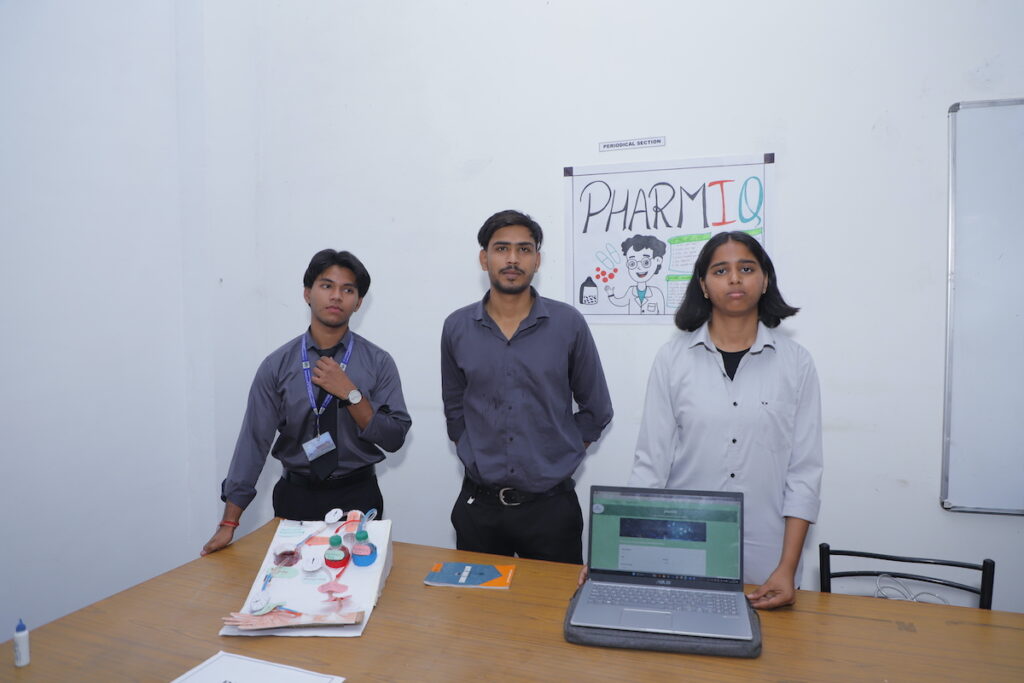
Scholarships and financial aid options for D.Pharm students include:
Merit-Based Scholarships
Awarded based on academic performance, often provided by colleges or government bodies.
Need-Based Financial Aid
Offered to students from economically weaker sections, available through institutions or government schemes.
State and Central Government Scholarships
Various programs support students in the form of financial aid or stipends.
Private Scholarships
Provided by pharmaceutical companies, foundations, or non-profits for eligible students.
Educational Loans
Offered by banks and financial institutions to cover tuition and other expenses, often with flexible repayment terms.
Benefits After DPharma Course
Here are some of the key benefits:
Quick Entry into the Workforce
The D. Pharma course is typically completed in two years, allowing graduates to enter the workforce relatively quickly compared to longer degree programs. This enables them to start earning and gaining practical experience early in their careers.
Diverse Career Opportunities
D. Pharma graduates have access to a wide range of career opportunities in various sectors, including retail pharmacy, hospital pharmacy, pharmaceutical manufacturing, sales, marketing, and regulatory affairs.
High Demand for Pharmacists
There is a consistent demand for qualified pharmacists in both urban and rural areas. This demand ensures a steady flow of job opportunities in hospitals, clinics, community pharmacies, and healthcare centers.
Entrepreneurial Opportunities
Graduates with a D. Pharma can start their own pharmacy or medical store, offering them the chance to become self-employed and build a successful business in the healthcare sector.
Further Education and Specialization
The D. Pharma qualification serves as a stepping stone for further studies, such as pursuing a Bachelor of Pharmacy (B.Pharm) or other advanced degrees. This opens up more specialized roles and higher-paying positions in the pharmaceutical industry.
Essential Role in Healthcare
Pharmacists play a crucial role in patient care by ensuring the safe and effective use of medications. This role is highly respected in the healthcare community, and pharmacists often develop strong relationships with their patients.
Job Security
Given the essential nature of healthcare services, D. Pharma graduates often enjoy job security. The ongoing need for medication and healthcare services ensures a stable and reliable career path.
Career Scope After DPharma

Here’s an overview of potential career paths:
Pharmacist
- Community Pharmacist: Dispense medications, provide patient counseling, and manage a retail pharmacy.
- Hospital Pharmacist: Work in hospitals, manage drug therapy, and collaborate with healthcare professionals to ensure effective patient care.
Pharmaceutical Sales Representative
- Promote and sell pharmaceutical products to healthcare professionals and institutions.
- Develop and maintain relationships with clients and provide information on new drugs and treatments.
Pharmacy Technician
- Assist pharmacists in preparing and dispensing medications, managing inventory, and handling administrative tasks.
Drug Store Manager
- Manage the operations of retail pharmacies, including staff supervision, inventory management, and customer service.
Clinical Research Coordinator
- Oversee clinical trials, ensure compliance with regulations, and manage patient recruitment and data collection.
Pharmaceutical Manufacturing
- Work in drug production, quality control, and quality assurance in pharmaceutical manufacturing facilities.
Pharmacovigilance Specialist
- Monitor and evaluate the safety of drugs, track adverse drug reactions, and ensure drug safety and efficacy.
Regulatory Affairs Specialist
- Ensure pharmaceutical products meet regulatory requirements, work with regulatory bodies for product approvals, and maintain compliance.
Medicinal Chemistry
- Work in drug design and development, focusing on creating new pharmaceutical compounds and improving existing ones.
Entrepreneurship
- Start and manage your own pharmacy or pharmaceutical business, offering products and services directly to the public.
Top Recruiters for D Pharma Graduates
Some of the leading recruiters in India for D. Pharma graduates are:
Cipla
One of the largest pharmaceutical companies in India, Cipla hires D. Pharma graduates for roles in production, quality control, and sales.
Apollo Pharmacy
A leading retail pharmacy chain, Apollo offers opportunities in dispensing, inventory management, and customer service.
Sun Pharmaceutical Industries
Known for its generic medicines, Sun Pharma recruits D. Pharma graduates for manufacturing and quality assurance roles.
Fortis Healthcare
A leading healthcare provider, Fortis hires D. Pharma graduates for hospital pharmacy roles, including drug dispensing and patient counseling.
Dr. Reddy’s Laboratories
This multinational pharmaceutical company offers roles in research, production, and regulatory affairs.
Himalaya Drug Company
Specializing in herbal products, Himalaya hires D. Pharma graduates for production and sales positions.
Ranbaxy Laboratories
Now a part of Sun Pharma, Ranbaxy hires graduates for manufacturing, quality control, and sales roles.
MedPlus
Another major retail pharmacy chain, MedPlus offers opportunities in store management and pharmacy operations.
Glenmark Pharmaceuticals
This company recruits D. Pharma graduates for roles in production, quality control, and research.
Novartis
A global pharmaceutical leader, Novartis hires graduates for roles in production, research, and regulatory affairs.
D Pharma Salary Range for D Pharma Graduates

Here’s a general overview of the D Pharma salary expectations in India:
Community Pharmacist
- Entry-Level: ₹15,000 to ₹25,000 per month
- Experienced: ₹25,000 to ₹40,000 per month
Hospital Pharmacist
- Entry-Level: ₹20,000 to ₹30,000 per month
- Experienced: ₹30,000 to ₹50,000 per month
Pharmaceutical Sales Representative
- Entry-Level: ₹20,000 to ₹30,000 per month (plus incentives)
- Experienced: ₹30,000 to ₹60,000 per month (plus incentives)
Pharmacy Technician
- Entry-Level: ₹15,000 to ₹25,000 per month
- Experienced: ₹25,000 to ₹35,000 per month
Drug Store Manager
- Entry-Level: ₹20,000 to ₹30,000 per month
- Experienced: ₹30,000 to ₹50,000 per month
Clinical Research Coordinator
- Entry-Level: ₹25,000 to ₹40,000 per month
- Experienced: ₹40,000 to ₹60,000 per month
Pharmacovigilance Specialist
- Entry-Level: ₹25,000 to ₹40,000 per month
- Experienced: ₹40,000 to ₹70,000 per month
Regulatory Affairs Specialist
- Entry-Level: ₹30,000 to ₹50,000 per month
- Experienced: ₹50,000 to ₹80,000 per month
Pharmaceutical Manufacturing
- Entry-Level: ₹20,000 to ₹35,000 per month
- Experienced: ₹35,000 to ₹60,000 per month
Medicinal Chemistry
- Entry-Level: ₹30,000 to ₹50,000 per month
- Experienced: ₹50,000 to ₹80,000 per month
FAQs
D फार्मा करने से क्या होता है?
D. Pharma (डिप्लोमा इन फार्मेसी) एक 2 वर्षीय कोर्स है जो फार्मास्युटिकल साइंस में बुनियादी ज्ञान और कौशल प्रदान करता है। यह कोर्स छात्रों को दवाइयों के निर्माण, वितरण और प्रबंधन के बारे में सिखाता है। D. Pharma पूरा करने के बाद, छात्र फार्मासिस्ट के रूप में पंजीकृत हो सकते हैं और अस्पतालों, फार्मेसियों, दवा उद्योगों, और सरकारी स्वास्थ्य सेवाओं में नौकरी कर सकते हैं। इसके अलावा, वे अपने खुद के फार्मेसी व्यवसाय की शुरुआत भी कर सकते हैं। यह कोर्स उन लोगों के लिए उपयुक्त है जो स्वास्थ्य सेवा क्षेत्र में करियर बनाना चाहते हैं।
डी फार्मा की 2 साल की फीस कितनी होती है?
D. Pharma की 2 साल की फीस संस्थान और राज्य के आधार पर अलग-अलग होती है। सरकारी कॉलेजों में यह फीस 10,000 से 50,000 रुपये प्रति वर्ष हो सकती है, जबकि निजी कॉलेजों में फीस 50,000 से 2,00,000 रुपये प्रति वर्ष तक हो सकती है। कुछ प्रमुख सरकारी संस्थानों, जैसे दिल्ली इंस्टीट्यूट ऑफ फार्मास्युटिकल साइंसेज एंड रिसर्च (DIPSAR) में फीस अपेक्षाकृत कम होती है, जबकि निजी संस्थानों, जैसे सेंट एंड्रयूज इंस्टीट्यूट ऑफ टेक्नोलॉजी एंड मैनेजमेंट (SACP) में फीस अधिक हो सकती है। फीस में अध्ययन सामग्री, प्रयोगशाला शुल्क, और अन्य अतिरिक्त खर्च शामिल हो सकते हैं।
डी फार्मा में कितने पेपर होते हैं?
D. Pharma (डिप्लोमा इन फार्मेसी) के प्रत्येक वर्ष में आमतौर पर 4 से 6 विषय होते हैं, जिनमें से हर एक का एक मुख्य पेपर होता है। पहले वर्ष में, सामान्यत: फार्मास्युटिक्स, फार्मास्युटिकल केमिस्ट्री, फार्माकोग्नोसी, और बायोकैमिस्ट्री के पेपर होते हैं। दूसरे वर्ष में, फार्माकोलॉजी, क्लिनिकल फार्मेसी, ड्रग स्टोर एंड बिजनेस मैनेजमेंट जैसे विषयों के पेपर होते हैं। प्रत्येक विषय में थ्योरी और प्रैक्टिकल परीक्षा दोनों होती हैं, जिन्हें पास करना अनिवार्य होता है। कुल मिलाकर, पूरे कोर्स के दौरान 8 से 12 पेपर होते हैं, जो छात्रों के ज्ञान और कौशल का मूल्यांकन करते हैं।
डी फार्मा करने के बाद कितनी सैलरी मिलती है?
D. Pharma करने के बाद प्रारंभिक सैलरी 2 लाख से 4 लाख रुपये प्रति वर्ष हो सकती है, जो लगभग 15,000 से 30,000 रुपये प्रति माह होती है। सैलरी का स्तर नौकरी की जगह, अनुभव, और संस्थान पर निर्भर करता है। सरकारी अस्पतालों में फार्मासिस्ट की सैलरी प्राइवेट सेक्टर की तुलना में स्थिर होती है, जबकि निजी अस्पतालों, दवा कंपनियों, या फार्मेसियों में अनुभव और कौशल के आधार पर सैलरी बढ़ सकती है। खुद का फार्मेसी व्यवसाय शुरू करने पर आमदनी और भी अधिक हो सकती है, जो आपके कामकाज और क्लाइंट्स पर निर्भर करेगी।




